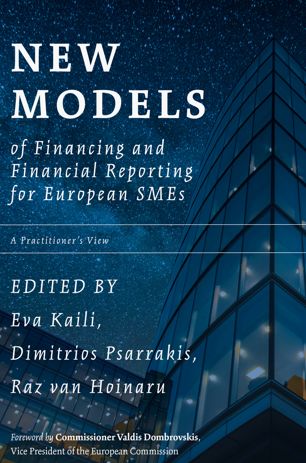

Most ebook files are in PDF format, so you can easily read them using various software such as Foxit Reader or directly on the Google Chrome browser.
Some ebook files are released by publishers in other formats such as .awz, .mobi, .epub, .fb2, etc. You may need to install specific software to read these formats on mobile/PC, such as Calibre.
Please read the tutorial at this link: https://ebookbell.com/faq
We offer FREE conversion to the popular formats you request; however, this may take some time. Therefore, right after payment, please email us, and we will try to provide the service as quickly as possible.
For some exceptional file formats or broken links (if any), please refrain from opening any disputes. Instead, email us first, and we will try to assist within a maximum of 6 hours.
EbookBell Team

0.0
0 reviewsThis book looks at the 23 million registered Small and Medium Enterprises (SMEs) that make up 98 per cent of the EU economy. Addressing the high end of SMEs in terms of new models for SME funding and financial reporting, this merged way of looking at SMEs reveals a ‘myopic’ thinking in terms of net present value and (future) cash flows generating short-termism and low risk appetite for business. This is not an accounting issue, but rather a preference toward certain financial tools. A segment of SMEs, the ones that seek new ways of funding possibilities, as well as modern technologies (MTFs listing, blockchain, ICOs, etc.) do require, even without knowing, IFRS for SMEs. This book reveals how market conditions impact the financial performance and sustainability of SMEs and also generate innovative policy interventions and financing strategies for SME integrity and efficiency. The authors frame their arguments in the context of the Capital Markets Union, looking at the Innovation Triangle, SME growth ecosystem and business models. They conclude by advocating for closing the circle of financing and financial reporting for SMEs, while considering if new financial models of financing and financial reporting are good for all the SMEs or only for some. The economy is being shaped by new models of financing and financial reporting. Read this practitioners’ view to understand the current changes and challenges.